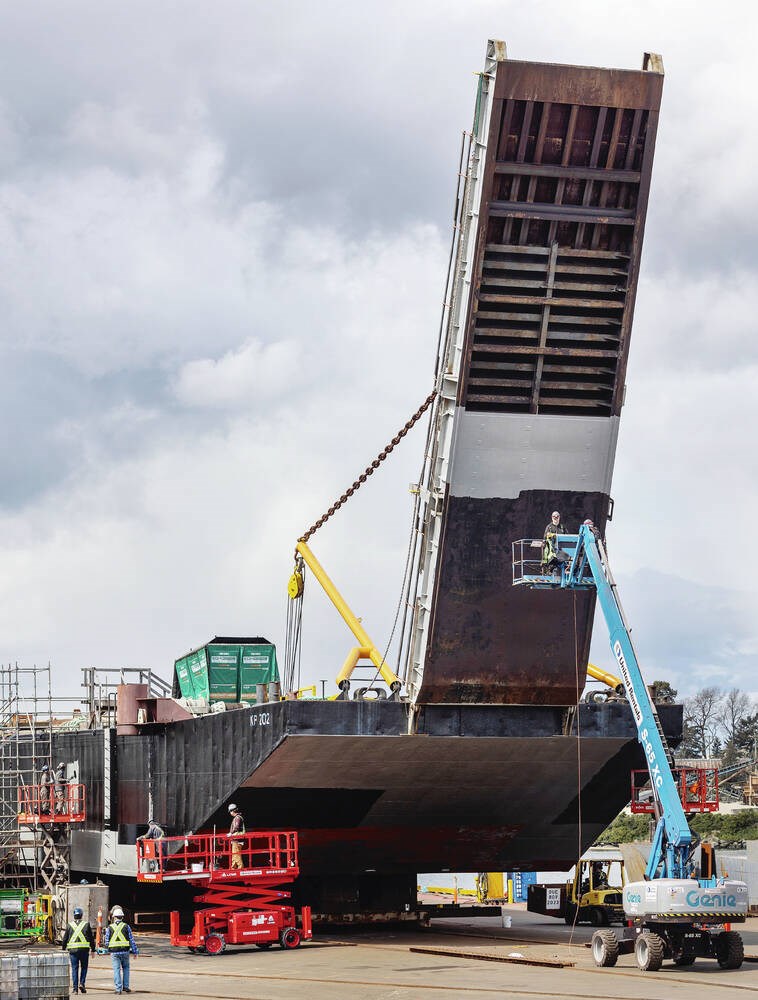Victoria Mayor Marianne Alto made a point Thursday of acknowledging that the city’s industrial landowners are facing a brutal tax bill this year and that council intends to make changes before next spring.
As council was set to give the first three readings of this year’s tax rate bylaw, which will see heavy industry face a 37 per cent increase in property taxes this year, Alto signalled to the industry that she’s heard its concerns and the city is “committed to doing this differently next year.”
“We need to acknowledge, in particular, that we have to work more closely with all of them, in particular industry, to provide the best possible options for us next year when we look at this,” she said. “We have the capacity to consider different ways of moving forward.”
Alto noted that Victoria doesn’t have a lot of industrial land, calling the industry that is in the city “massive contributors, not just to the tax base, but also to the community as they’re remarkable investors in a whole variety of programs.”
“They also contribute incredibly highly to the ability of our workers to find jobs here and to be able to work here and to be able to part of our community and make that as rich as it is.”
But change won’t come until 2024 at the earliest, and the city remains on course for its tax-rate policy for 2023.
That means all property classes — other than industrial — will face a 6.15 per cent increase this year.
Council decided residential and business property owners will face the relatively modest increase this year as it seeks a 6.23 per cent increase in property taxes across the board.
That leaves major industry facing a 37 per cent increase in property taxes and light industrial properties facing a 22 per cent rise.
According to the city, the changes in the industrial class reflect assessment increases.
The tax bill for the average residential property, with an assessed value of $1.05 million, is expected to increase $172 this year, while businesses with an average assessed value of $714,000 face an extra $445 in taxes.
Point Hope Maritime, owned by the Ralmax Group, is the only major industrial firm in Victoria that will face the 37 per cent increase in its property tax bill this year.
Ralmax president Ian Maxwell said he was disappointed that Point Hope was singled out and expected the increase would result in a tax increase that’s in the six-figure range.
The increase is due to the mill rate — how much property owners pay per $1,000 of assessed value — and the assessed value of the property. City council has set the mill rate at 2.8 for residential and 10.695 for business, light industrial and major industrial properties.
Point Hope’s tax bill jumps significantly because B.C. Assessment has valued the three properties that make up that facility at nearly $38 million this year, up from $30 million last year.
This year, residential property owners will pay nearly 53 per cent of the property tax collected by Victoria, while businesses will pay 45.5 per cent. Industrial properties will pay about one per cent of the total tax bill.
>>> To comment on this article, write a letter to the editor: [email protected]



